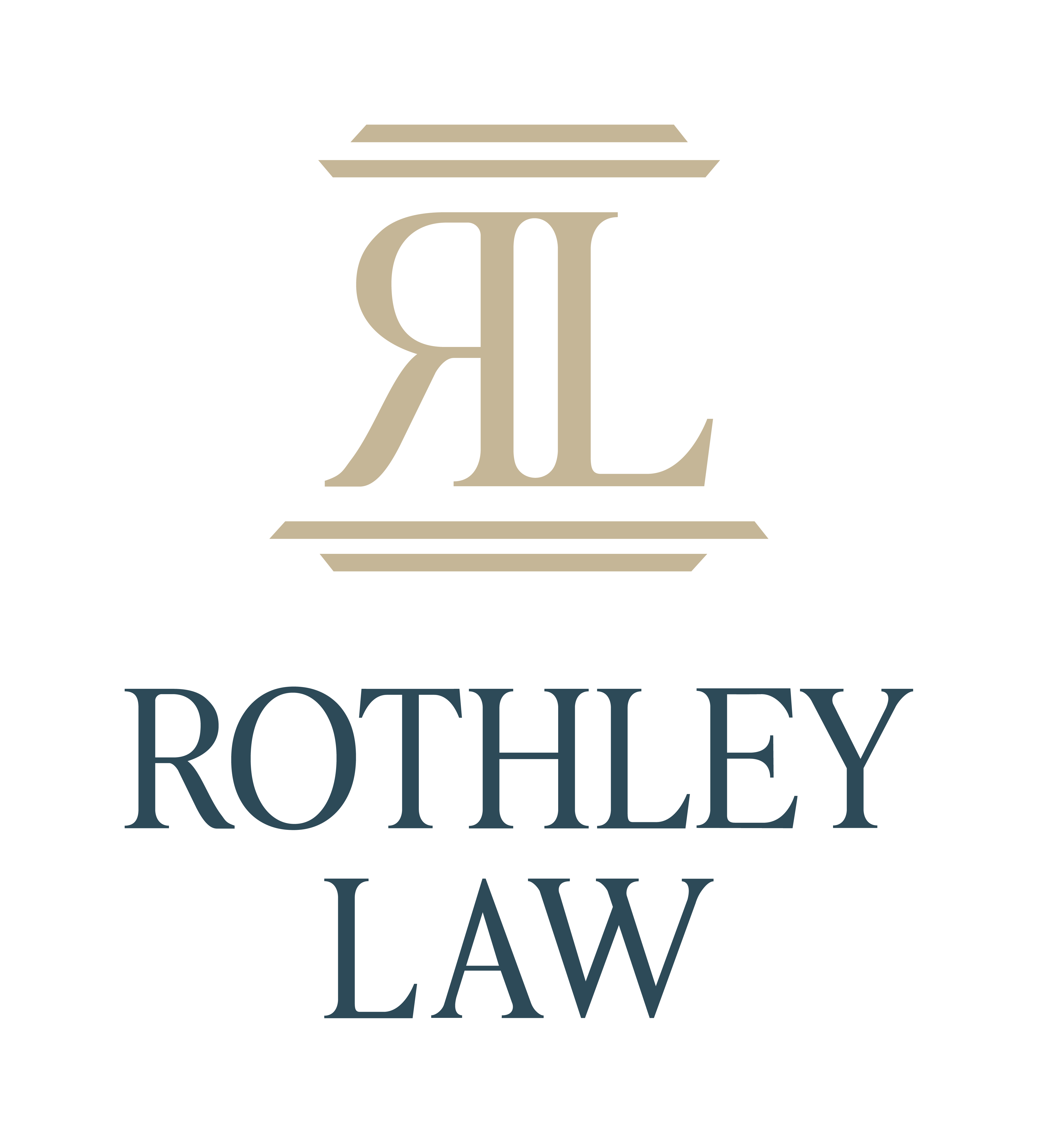We deal with all types of Will and Probate disputes. Our outstanding approach has been recognised with several prestigious industry awards, including the Best Contentious Probate Wills & Probate Team at the British Wills and Probate Awards in 2020 and 2021 (and being Highly Commended in this category in 2022). We’re also the only law firm supporting Parliament and Fabian Hamilton MP to seek law over predatory marriages. Our team also provide expert commentary for national newspapers and appeared in Channel 5’s Inheritance Wars.
We are also a team that is sensitive to resolving complex and emotional disputes. We often resolve matters through mediation (click here for our guide) which is private and cost effective and avoids the court process. We also offer flexible funding wherever possible. This includes “No Win No Fee Agreements”
Our approach
When acting for a client, we recommend that, wherever possible, claims are resolved in private, as this avoids the costs and delays that arise with the court process. When this is not possible, our experience and expertise helps increase the chances of success for our clients. Our cases don’t just get results for our clients, they hit the headlines, and in some cases, even shape the law.
Client commitment
We’re dedicated to getting you the best possible outcome, and we put you at the centre of everything we do. We tailor our approach to each case because everyone’s situation and circumstances are unique. Our team is made up of ACTAPS qualified solicitors, and our work is highly regarded by our clients and within the profession.
We’re recognised and ranked by leading professional publications, which describe members of our team as “outstanding” and “able to deal with complex matters in a timely and effective manner”.
Our outstanding approach has also been recognised with several prestigious industry awards, including the Best Contentious Probate Wills & Probate Team at the British Wills and Probate Awards in 2020 and 2021 (and being Highly Commended in this category in 2022).
We’re the only law firm supporting Parliament and Fabian Hamilton MP to seek law reform to protect the elderly and venerable and prevent claims ever arising. Our team also provide expert commentary for Channel 5’s Inheritance Wars.
The Inheritance (Provision for Family and Dependants) Act 1975 (The Inheritance Act) provides for certain groups of people to make a claim for reasonable financial provision from the Deceased’s Estate, even if the Will is valid.
These groups of people are:
- The spouse or civil partner of the deceased
- A former spouse or civil partner that has not formed a subsequent marriage or civil partnership
- A child of the deceased
- Someone who was treated as a child of the family by the deceased (this includes stepchildren)
- Someone who was being wholly or partially maintained by the deceased immediately before the deceased’s death
- Someone who, for the two-year period before the deceased’s death, was living with the deceased as if they were married or civil partners (in essence, unmarried couples living together)
If successful, the court can change a valid Will to make provision to help with financial needs.
Our team has a wealth of experience in bringing and defending Inheritance Act claims. We have a high success rate, with most cases settling at mediation or through negotiations, therefore avoiding the court process.
Useful guides
In England and Wales, we have the principle of testamentary freedom which means a person can leave their Estate to whoever they want to in their will, provided they have capacity and are acting of their own free will and volition. A Will cannot be challenged simply because its provisions are felt to be unfair or because a beneficiary is disappointed.
The grounds on which a Will can be challenged are:
- Lack of due execution
- Lack of testamentary capacity
- Lack of knowledge and approval
- Undue influence
- Fraudulent calumny
- Fraud or forgery
If any of the above are found, then effectively the Will does not represent the testator’s wishes and, as a result, is invalid. This means that the Estate will pass in accordance with the most recent earlier Will, or if there is no Will the laws of Intestacy apply.
The burden of proof is on the person seeking to challenge the validity of the will and it is on the balance of probabilities (in other words, what is more likely than not).
Each case is decided on its own facts. The evidence the Court will consider is:
- The Will writing file
- Evidence from the Will Writer who took instructions for and executed the Will (this is also known as a Larke v. Nugus statement)
- Medical evidence – this will include the medical notes and/or evidence from the GP or capacity expert
- Witness evidence
- Anecdotal evidence (usually from friends, neighbours, or colleagues)
Our expert team has extensive experience of acting in these disputes both as claimant and defendant.
Where it is not possible to challenge the validity of a will, disappointed beneficiaries may still be able to pursue a claim for financial provision from the estate pursuant to the Inheritance (Provision for Family and Dependants) Act 1975.
Useful guides
It is possible to bring a claim against a living person or deceased’s Estate (even if their Will is valid), for a broken promise in certain circumstances. These are called Proprietary Estoppel claims.
Proprietary Estoppel is a legal remedy that the courts can use when:
- A landowner makes a promise to a person that they will inherit land or a property
- That person relies on the promise to their detriment
- The landowner goes back on their promise
- It is unconscionable (unreasonable) for them to do so
These types of claims often arise in farming families, although they are not limited to this.
For example, a farmer who has two sons, repeatedly tells his sons that they will both inherit the farm when he dies. The sons work on the farm for very little pay throughout their lives and do not pursue any other careers, on the understanding that they will one day inherit.
The farmer dies, but either his Will only leaves the farm to one of his sons, or there is an unequal split in the farm between the two sons.
In this scenario, the son that has not benefitted from the will, or not benefitted on the terms he was told he would, can bring a claim in Proprietary Estoppel.
A recent proprietary estoppel claim was Habberfield v Habberfield [2018], where Lucy Habberfield was successful in a Proprietary Estoppel claim against her mother, who was alive when the claim was made. Lucy had worked on her parents’ dairy farm for 30 years since she was 16, working long hours for low pay, and had repeatedly been told by her parents that she would take over the farm.
Lucy had had an argument with her sister and stopped working at the farm a few months before her father’s death. Her father died, and the farm passed to Lucy’s mother. Lucy was successful in her claim.
Proprietary Estoppel claims are complex and require a detailed understanding of the relevant law, our team has handled numerous Proprietary Estoppel claims and have an in-depth understanding of intricacies of this area of this area of law.
If you think that you may have grounds to pursue a claim, or need help defending a claim, please get in touch to discuss your potential case with our team.
Executors are the people appointed in the will to administer an Estate.
Where a person dies without a Will, rule 22 of The Non-Contentious Probate Rules 1987 provides a list of those persons entitled to act in the Estate administration, in order, which mirrors those entitled to receive the estate pursuant to the statutory intestacy provisions. They become the administrators and have the same role and duties of an executor.
Executors/administrators are required to:
- Collect in, secure, and maximise the value of Estate assets
- Pay Estate liabilities including any tax due, and any administration expenses
- Distribute the Estate in accordance with the Deceased’s wishes as detailed in their Will or in accordance with the statutory intestacy provisions if there is no Will
The role of the Executor or Administrator is to administer the Estate in a timely manner and act in the best interests of the beneficiaries. They have a duty to actively progress the administration. They also have a duty not to allow their personal interests to conflict.
Executors or Administrators may not always agree between them what to do or it may be that the beneficiaries of the Estate do not consider that the executors are acting properly because of, for example, delay, misdistribution, or alleged breach of duty.
In that case there is an executor dispute, and we can act in cases (for claimant or defendant) regarding:
- Burial/funeral disputes
- Citations – to force action to administer the Estate
- Breakdown in communications and obtaining information/Estate accounts
- Disputes regarding personal belongings
- Action to remove executors
- Ascertaining or locating beneficiaries
- Applying to court for directions as to how to administer the Estate
- Recovering losses caused to an Estate by executor breach of duty
It is possible for a Will to be put in place for someone who lacks the capacity to make one by making an application to the Court of Protection to authorise the Will.
The Court of Protection is a specialist court that deals with people who do not have the capacity to manage their own affairs, and deals with Powers of Attorney, Deputyships, and Statutory Wills.
There can be many reasons for making a Will where a person doesn’t have the mental capacity to do so, such as a change in their circumstances, or they only have a short time to live and do not have a Will.
To make a Statutory Will, it is necessary to make an application to the Court of Protection, notify relevant people that an application has been made, and attend a hearing where the court will decide whether to make the Will.
Whilst the process itself appears straightforward, difficulties often arise when there is disagreement between, for example, different family members, or the family and a Deputy, about what the Will should say.
We are experienced in making applications for Statutory Wills, and in representing family members where they do not agree with the terms of the proposed Will.
Please get in touch with us if you require advice on this subject, and one of our team will be happy discuss things with you.
Useful guides
Financial abuse arises where an elderly or vulnerable person is taken advantage of.
Examples can include:
- Monies being taken from their bank account by a person with access
- Inappropriate or unauthorised spending by attorney or deputy
- Undue influence being applied to make lifetime gifts
- Third parties carrying out unnecessary work or overcharging
- Scams
- Identity fraud to secure loans or credit cards
- Romance abuse or predatory marriage
Our Disputed Wills and Trusts team can assist with reports to the Office of the Public Guardian and Social Services during lifetime and with putting in place safeguarding measures such as Lasting Powers of Attorney, Deputyship applications or removal of Attorneys or Deputies. We can also assist with claims for recovery of funds or declarations of invalidity in respect of lifetime gifts both before and after death.
Disputing a Will or Contentious Probate is a specialist area of law. Our team members all practice exclusively in a range of Contentious Probate disputes, both bringing and defending claims.
Unfortunately, we are seeing an increasing number of Contentious Probate disputes being dealt with by solicitors who are not specialists in this area of law. This can result in significant delays in a claim, incorrect advice being given, and increased costs to a client which could have been avoided if the dispute had been handled by someone with relevant expertise.
It is not uncommon for clients to switch solicitors during a claim, and we are happy to help in such cases. We have taken on cases at all stages of litigation which have been dealt with by other solicitors, from before court proceedings being issued, to shortly before trial.
If you have concerns about the way in which your Contentious Probate claim is being dealt with, please get in touch with us for a no obligation chat.
Alternatively, you may have already concluded a Contentious Probate claim, and subsequently become aware of negligence on the part of your solicitors. We are experienced in dealing with professional negligence claims of this nature, so please get in touch with us.
A Trust is a financial arrangement where a third party (the Trustee) is responsible for looking after assets on behalf of others (the Beneficiaries).
A Trust dispute is any dispute relating to the administration of that Trust. Such a dispute can arise between co-trustees or between Trustees and Beneficiaries and can be common where Trustees are afforded discretion regarding the management or distribution of the trust.
The role of the Trustee is to administer the Trust in accordance with law and as per the terms of the Trust, to exercise reasonable care and skill and act in the best interests of the Beneficiaries. They also have a duty to act with impartiality and not to allow their personal interests to conflict.
We can act in cases (for claimant or defendant) regarding:
- Interpretation of a trust deed or validity of Trust
- Correcting mistakes by Trustees
- Breakdown in communications and obtaining information/Trust accounts
- Action to remove Trustees
- Variation of trusts or bringing trusts to an end
- Applying to court for directions as to how to administer the trust
- Recovering losses caused to an Estate by trustee breach of duty
In addition to the examples given above, solicitors can also be negligent in other ways when preparing a Will, and it may not be possible to fix these mistakes through an application for Rectification or Construction.
For example:
- Failing to advise the testator of any tax implications of dividing their Estate as they wish, or a mistake in the Will drafting resulting in more tax being payable
- Failing to consider whether the testator has the mental capacity to make a Will
- An unreasonable delay in preparing the Will, with the testator dying before it is executed
This list is by no means exhaustive. If you think there may have been negligence in the Will drafting process, please get in touch with us for a no obligation chat. Our team is experienced in dealing with professional negligence claims of this nature.
When instructing a professional to prepare a Will, the expectation is that the process will run smoothly with no issues.
Mistakes can be made, however. In the case of Will drafting, a mistake by a professional may not come to light until years later, when the person that made the Will has died.
Common mistakes made in Will drafting are failing to understand the wishes of the Testator (the person making the Will), so that the Will does not reflect the Testator’s wishes, or a mistake in the drafting of the Will.
In such circumstances, it is possible to make an application to the court to rectify or interpret the Will (called Rectification and Construction claims respectively).
Such applications can only be made in limited circumstances and must be made to the court within six months from the date of the grant of probate.
It is therefore important to seek legal advice as soon as possible. Please get in touch with our specialist solicitors will be able to advise and assist you.
These are claims where individuals (usually elderly people) whose mental capacity is in doubt or who are vulnerable to undue influence are coerced into a marriage.
S.18 Wills Act 1837 provides that in most circumstances a valid Will is automatically revoked by a marriage. This applies even if the marriage is predatory in nature.
In the worst-case scenario, a predatory marriage takes place, and the Will is lost, so all the intended beneficiaries are disinherited.
How could we assist?
If you have suspicion that a loved one is subject to pressure to marriage, or believe a predatory marriage has taken place, we could advise on the following remedies:
- Whether steps are taken to stop a marriage taking place
- If the parties to the marriage are alive, take steps to challenge the marriage
- If possible, take steps to reinstate a revoked Will through a special court application called a “Statutory Will”
- If the loved one has passed away, there is a final option of seeking provision from the Estate if you are dependent on the deceased or have a close family relationship, the courts can consider awarding reasonable financial provision to assist with the daily costs of life and reasonable future needs
These claims are complex, and time is of the essence. Only prompt action can truly remedy a predatory marriage.
Rothley Law is campaigning for reform of this form of abuse and has taken a leading role in assisting Daphne Franks with her ‘Justice for Joan’ campaign. Andrew Bishop, Partner in our Disputed Wills & Trusts team, has spent many hours advising and assisting Daphne and Fabian Hamilton MP











